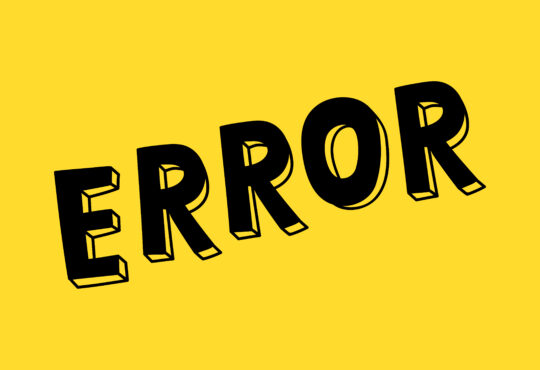- Gross Pay (GP)
- Net Pay (NP)
- Federal Income Tax (FIT)
- State Income Tax (SIT)
- Social Security (SS) and Medicare (MED)
- 401(k) or Retirement Contributions
- Health Insurance (HI)
- Deductions
- YTD (Year-to-Date)
- Codes for Earnings
- Employer Contributions
- Leave Balances
- Why Is Paycheck Stub Important?
- Conclusion
When you get your paycheck, it’s normal to experience various feelings, from joy to relief to perhaps a little bewilderment. An employee’s paycheck stub (sometimes called a pay stub or payslip) provides information on their gross pay, deductions, and bank transactions for a given pay period. Additionally, online tools can be used to make a check stub, which can help speed up the procedure. Learn the ins and outs of your paycheck with the help of this blog post and become an expert at decoding those abbreviations.
Gross Pay (GP)
Your gross salary is the total amount you receive before taxes and other deductions are taken out. Overtime, bonuses, and commissions are factored in along with your base hourly or salary rate for the pay period.
Net Pay (NP)
The term “net pay” refers to the money left over after taxes and other deductions have been taken out of your gross salary. That’s how much you may expect to see in your bank account. It’s the most crucial figure to consider while making ends meet.
Federal Income Tax (FIT)
The federal income tax is the tax you owe to the federal government based on your income. The amount withheld from your paycheck depends on your filing status, several allowances claimed on your W-4 form, and the tax brackets that apply to your income.
State Income Tax (SIT)
If you live in a state that has an income tax, you’ll likely see this deduction on your check stub. Like federal income tax, state income tax relies on your earnings and the tax rates applicable in your state.
Social Security (SS) and Medicare (MED)
These are both payroll taxes that fund specific programs. Social Security provides retirement and disability benefits, while Medicare covers medical expenses for 65 and older. Typically, tax authorities withhold taxes at fixed percentages.
401(k) or Retirement Contributions
The program will display your contributions here if you participate in a retirement savings plan such as a 401(k). These contributions will be deducted from your gross pay before taxes, reducing your taxable income.
Health Insurance (HI)
If you’ve chosen the health insurance option provided by your employer, they will deduct the cost of your insurance premium from your paycheck. This abbreviation may also include dental and vision insurance if they’re part of your benefits.
Deductions
Aside from taxes and insurance, your check stub may list other deductions, such as contributions to a flexible spending account (FSA), health savings account (HSA), or other benefits your employer offers.
YTD (Year-to-Date)
You’ll encounter the “YTD” label followed by various figures throughout your check stub. It indicates the cumulative totals of different earnings and deductions from the beginning of the year to the current pay period. Keeping an eye on your YTD figures helps you monitor your financial progress over the year.
Codes for Earnings
Apart from deductions, the abbreviations on your check stub may also represent different types of earnings. For example, “REG” could stand for regular hours worked, “OT” for overtime hours, and “HOL” for holiday pay.
Employer Contributions
If your employer decides to match the contributions you make to retirement plans or other employee benefits, you could observe these matched contributions specified on your paycheck statement. It is free money that your employer is adding to your accounts.
Leave Balances
If you’re eligible for paid time off (such as vacation or sick days), your check stub might include information about your accrued and used leave hours. It can be beneficial for tracking your time off throughout the year.
Why Is Paycheck Stub Important?
The paycheck stub is essential for several reasons:
– Decoding Your Financial Health
Understanding the abbreviations on your check stub isn’t just about deciphering jargon – it’s about taking control of your financial well-being. You can make more informed decisions about your budget, savings, and spending habits by understanding where you spend your money and how your paycheck gets divided.
– Transparency
The paycheck stub breaks down the various components of an employee’s pay, including base salary or hourly wage, overtime pay, bonuses, and other forms of compensation. This transparency enables employees to comprehend the calculation process of their total earnings.
– Verification
Employees can use the paycheck stub to verify that they have been paid accurately according to their agreed-upon terms of employment. It allows them to cross-reference their hours worked and any additional payments received.
– Tax Documentation
Paycheck stubs contain information that must be reported to the IRS. It details the federal, state, and federal and state income taxes, Social Security, and Medicare deducted from an employee’s paycheck. Income tax returns cannot be completed without this data.
– Deductions and Benefits
The paycheck stub also lists deductions from an employee’s gross pay, such as contributions to retirement plans (e.g., 401(k)), health insurance premiums, and other benefits. It helps employees keep track of their contributions to various accounts and benefits programs.
– Compliance
Employers are often legally required to provide accurate and detailed pay information. Paycheck stubs help ensure compliance with labor laws and regulations related to wage payment and transparency.
– Budgeting and Financial Planning
The detailed breakdown of earnings and deductions on the paycheck stub assists employees in budgeting and financial planning. By understanding their earnings and deductions, employees can improve their financial management.
– Record Keeping
Paycheck stubs serve as a record of an employee’s pay history. They are essential for future reference, such as when applying for loans, mortgages, or other financial transactions that require proof of income.
– Stay Informed
As tax laws and benefit offerings change, so might the abbreviations on your check stub. Staying informed about updates to tax codes, retirement plans, and other financial matters can help you make the most of your paycheck and optimize your financial situation.
Conclusion
Deciphering the abbreviations on your check stub may initially seem like a puzzle, but with a little effort and education, you can become a seasoned pro at understanding your compensation. Understanding gross and net pay, taxes, deductions, and other financial intricacies will enhance your ability to manage your finances, make informed decisions, and ultimately attain your financial goals. Your check stub isn’t just a piece of paper – it’s a window into your financial journey.






